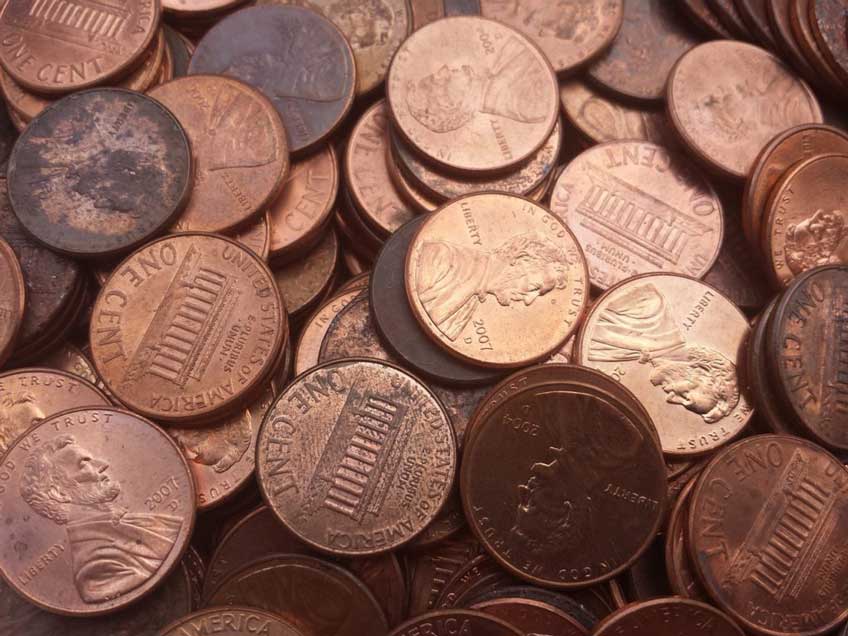Looking for a little extra spending money? Whether you’re saving for that big vacation or just want to line your pockets a bit, the extra cash you’re looking for may be right in your basement, garage or attic!
While scrap metal recycling centers will take almost any metal off your hands, if you want your trip to be really lucrative, you need to know which metals and products typically fetch the most green. Certain rarer metals are worth more, and you may get a bigger haul if you bring items where the metal is easier to extract.
Here’s a rundown of the most common materials:
-
- Copper. Copper is without a doubt one of the most valuable metals in the scrap yard. You can find it in pipes, wiring and other building materials used at home. The going rate runs among the highest per pound! The trick to recycling copper is to know the difference between copper grades, since some are more valuable than others. For instance, #1 grade copper—pure, unalloyed copper free of attachments—is worth much more than grade 3, which typically comes from roofing materials.
- Brass. Brass and other alloys are in high demand at the scrap yard. Brass, a combination of zinc and copper, is typically used for door handles, locks, pipes, and light and sink fixtures. Brass will fetch you a pretty penny—the exact cost depends on the quality of the metal and the material from which it originates.
- Bronze. A close relative to brass, bronze is another copper alloy—this time mixed with tin, phosphorus, manganese, aluminum, or silicon instead of zinc. It’s much more malleable than brass, which makes it a little more valuable than its brassy cousin. Expect a good rate for recycled brass objects.
- Aluminum. Aluminum is very common and useful. From soda cans to siding to cooking utensils, aluminum makes up a vast range of household objects. Unfortunately, its ubiquity also makes it slightly less valuable. Aluminum scrap will usually earn you a lesser amount per pound, depending on the type of object you bring in. For instance, aluminum coil is worth much more pound-for-pound than a bunch of cans.
- Steel. Steel is another familiar metal—you can find it in everything from food containers to washing machines! And again, that ordinariness drives down the going rate.
- Stainless steel is the most precious of the steel materials and will get you the best price. Otherwise, prices may go pretty low for more common steel.
Of course, there are other scrap metals too, like tin and iron, for instance, which typically don’t fetch as much on the market. Call us here at Gardner Metals to check on the going rate and receive a free quote.
Maximizing Your Haul at the Recycling Center
Regardless of what kind of metal you have on your hands, there are a few tricks you can use to make the process go a little smoother—and to make your hard work pay off!
-
- Strip your wire before you bring it in. If you do some of the work of removing attachments instead of turning it in as-is, scrap metal companies will pay you handsomely.
- Buy a pocket-sized magnet for metal testing. Non-ferrous metals—your coppers and alloys, for instance—are worth much more than ferrous ones. Fortunately, there’s an easy way to test for this. Just bring out a pocket magnet and place it close to the scrap you’re planning to sell. If it’s drawn to the object, it has iron (aka ferrum) in it.
- Sort metals first. Separate smaller scrap metal objects into their own containers before you bring them into the yard. The reason? If metals are all jumbled together, industry standard is to charge for the least valuable type in the bunch. So with a little hard work you can earn yourself a lot more coin for your metal!

